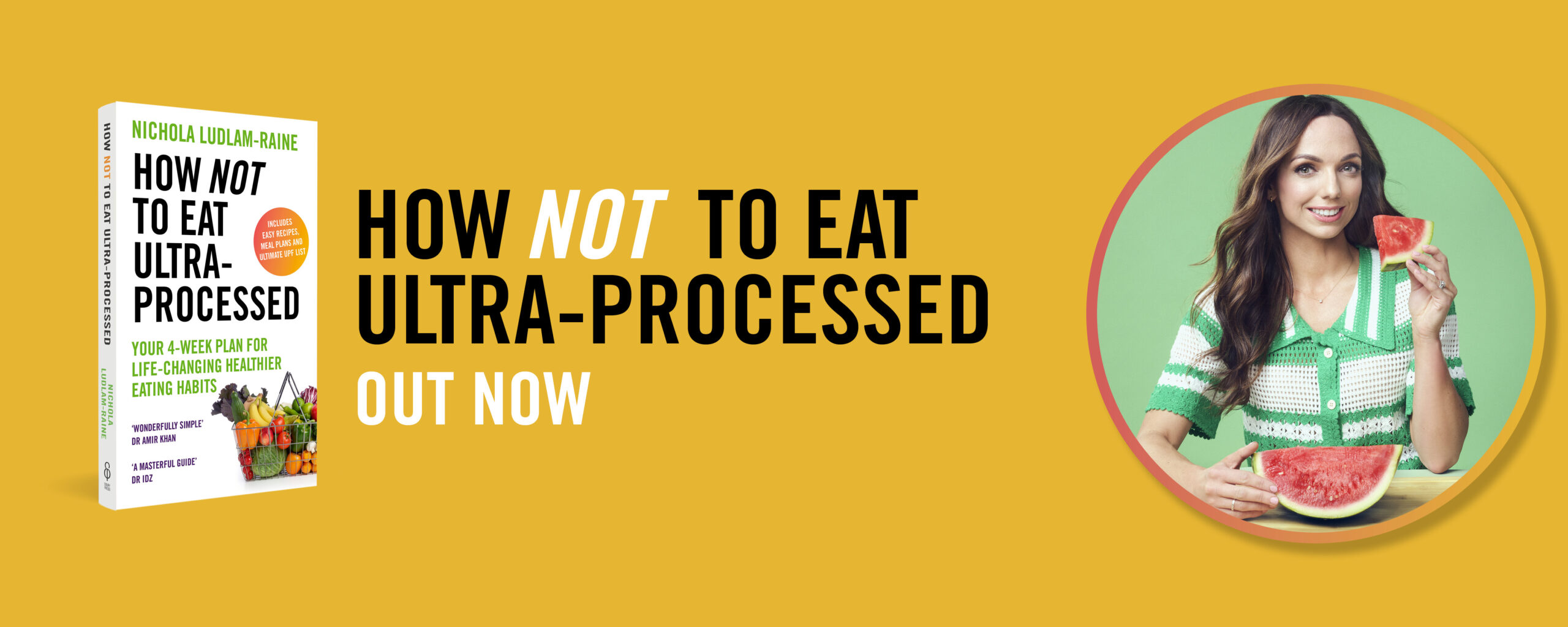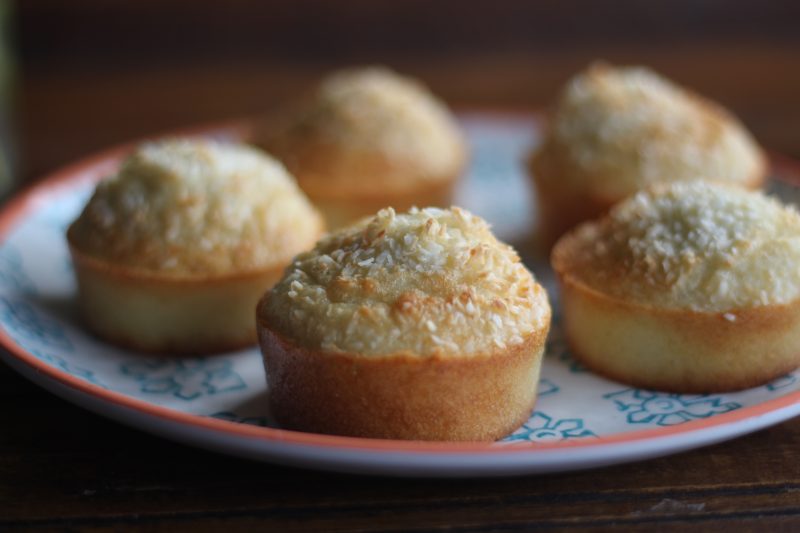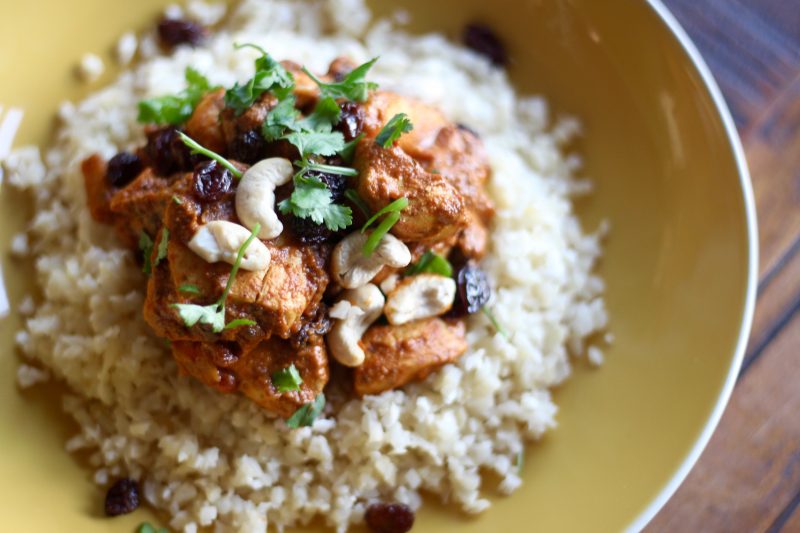
Hello! So I was up bright and early this morning (5am!) to speak on the BBC Breakfast sofa with Louise Minchin and Dan Walker about coconut oil. The topic of coconut oil came about thanks to a pioneering piece of research conducted by Professor Khaw and her team, that showed 50g of coconut oil to not raise the so-called ‘bad’ LDL-cholesterol (as we would have expected from a saturated fat), and to increase the ‘good’ HDL-cholesterol, when consumed for 4 weeks (in comparison to butter which did raise LDL-cholesterol and olive oil which didn’t).
Disclaimer: The study is yet to be published and to date I have only read the draft copy.
Here are my summary comments below, and if you’re interested you can read more about the current recommendations for heart health in [this blog post]!
- It’s a really interesting study but what we have to remember is that it’s relatively small in nature; there was only around 30 people in each group, it wasn’t controlled; so we don’t know what else the study participants were (or weren’t!) eating throughout the trial, and it only lasted for 4 weeks. On that basis, I can safely say that national guidelines won’t be changing regarding the best types of oil to use and the authors do actually say this as well; more studies are indeed needed in this area.
- The participants’ diets must have changed during the 4 weeks as their weights didn’t go up, despite consuming an additional 450 calories a day; the author’s question whether this was to do with the fact that the participants felt fuller. For all we know, they could have been consuming fewer biscuits, crisps and fried food etc.; foods which we know when eaten frequently aren’t good for health (or cholesterol levels!).
- What we can take away from this study is that coconut oil may be less harmful, regarding the risk for heart disease, than we once thought, however the study definitely doesn’t say that it is beneficial.
- Coconut oil in the study increased HDL (the ‘good’ cholesterol) however there are other studies going on in this area at the moment to find out if the HDL that is increased works as well in protecting your heart (I’m referring to the anti-inflammatory properties here).
- The study may not be applicable to the wider population; 98% of the study participants were caucasian, the average age was 60, and they were all reasonably healthy (didn’t have diabetes/heart disease etc.).
- What we know currently is that when we replace saturated fat, which is found in butter and coconut oil, with unsaturated fat, which is found in olive oil, rapeseed oil, avocados, nuts, seeds and oily fish, the risk for heart disease is lowered.
- Calculating the risk for heart disease takes into account not only cholesterol levels (LDL and HDL), but triglyceride levels, blood glucose levels and blood pressure too. Genetics, stress, diet and activity levels all play a role in the risk for heart disease.
- Different food sources of saturated fat have different affects on blood cholesterol levels; for example butter isn’t necessarily cardio protective but full fat dairy might be (cheese/milk/yoghurt).
- At the moment there isn’t enough evidence to promote coconut oil as an every day cooking oil; it should still be olive oil or rapeseed oil; use the green bottle or extra virgin olive oil (EVOO) for salad dressings and the yellow bottle (refined olive oil) for cooking as the latter is more heat stable.
- The benefits of olive oil are to do with its anti-inflammatory properties, not just the effects on the cholesterol in our body.
- Our current national guidelines promote eating no more than 20g saturated fat a day (there’s 14g of saturated fat in one tbsp of coconut oil and just 2g in 1 tbsp of olive oil); however this advice may change in the future as the research into dietary sources of saturated fat evolves.
- It’s ok to use coconut oil in small amounts in the right dishes, for example Thai curries!
- It’s rather reductionist to look at just one nutrient when it comes to our diet and health. We need to take a step back and look at the diet as a whole.
- Healthy eating behaviours include eating plenty of fruit and vegetables, having whole grains rather than refined grains (e.g. oats and wholemeal bread over white bread), including soy products (milk, beans and nuts), and eating nuts as well as oily fish.
- Healthy lifestyle behaviours include not smoking, reducing or omitting alcohol, managing stress and sleeping for 7-8 hours a night.
I really hope you find this blog post interesting and useful –
I would love to know what type of oil you use!!



Hello Nic,
Great to read your piece and hear you extolling the virtues of Olive Oil. I just wanted to flag up (hope you don’t mind!) that higher quality olive oils have higher smoke points, so the safer you are to cook with them. There’s further information here about different smoke points for oils if of interest to your followers.
http://www.frantoi.org/cooking-with-oil-smoke-point/
https://www.frantoi.org/what-are-you-cooking-with-olive-oil-vs-other-oils/
Many thanks, Elizabeth
Author
Thank you for explaining! The research on smoke points is so variable but at least users can follow the guidelines on the label 🙂